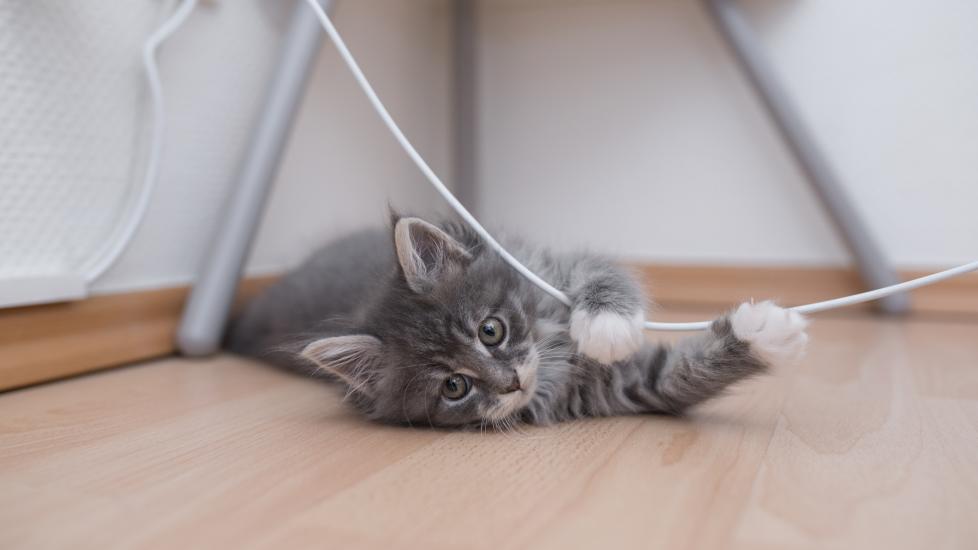 Cats, with their curious nature and sharp teeth, often find electrical cords a tempting target for chewing. This behavior not only poses a danger to your feline friend but also threatens the safety of your home’s electronics. If you’re looking to deter this destructive habit without resorting to harsh measures, here are some effective strategies that combine positive reinforcement with environmental changes:
Cats, with their curious nature and sharp teeth, often find electrical cords a tempting target for chewing. This behavior not only poses a danger to your feline friend but also threatens the safety of your home’s electronics. If you’re looking to deter this destructive habit without resorting to harsh measures, here are some effective strategies that combine positive reinforcement with environmental changes:
Understanding Why Your Cat Chews:
Before addressing the problem, it’s crucial to understand why cats chew in the first place. Common reasons include teething (in kittens), boredom or anxiety, attention-seeking behaviors, or simply because they enjoy the texture and taste of plastic.
Create an Enriching Environment:
A well-catered environment can significantly reduce the likelihood of cord-chewing incidents. Provide plenty of toys that mimic natural prey, such as feathers and laser pointers, which stimulate hunting instincts. Additionally, invest in scratching posts made from materials similar to cords to satisfy your cat’s instinctual need to scratch and bite.
Supervision and Distraction:
Keep a close eye on your pet when you suspect she might be tempted to nibble on wires. Immediate redirection with a toy or treat can help break her focus from the cord. Interactive play sessions throughout the day will tire out your cat physically, making her less likely to engage in unwanted behaviors.
Positive Reinforcement Training:
Reward good behavior consistently. Every time your cat ignores a cord, offer praise or treats. Over time, your kitty will learn that leaving cords alone brings rewards. You can even teach specific commands like “leave it” using clicker training techniques. Click whenever your cat looks away from the cord, then reward with a treat.
Hiding Electrical Wires:
If possible, conceal exposed cables within walls or use decorative sleeves designed specifically for wire management. Alternatively, wrap them tightly with non-toxic, tasteless material that won’t harm your cat if ingested accidentally.
Scent Deterrents:
Placing citrus peels, lavender essential oil, or other scents known to repel cats near sensitive areas can discourage them from investigating those spots further. However, ensure these products are safe for both pets and humans before introducing them into your home.
Consistent Monitoring and Correction:
Be vigilant about monitoring your cat’s activities around cords. Consistently correct undesirable actions by gently redirecting her attention while praising desired ones. Remember that consistency is key; otherwise, your efforts may go unnoticed.
By implementing these methods simultaneously, you create a multifaceted approach that addresses the root causes of cord-chewing behavior and provides alternatives that are equally satisfying to your cat. With patience and persistence, you should see a reduction in these potentially hazardous habits over time. Always prioritize your pet’s welfare and maintain a loving relationship during the process, as punishment could lead to resentment or more severe behavioral issues down the road.
